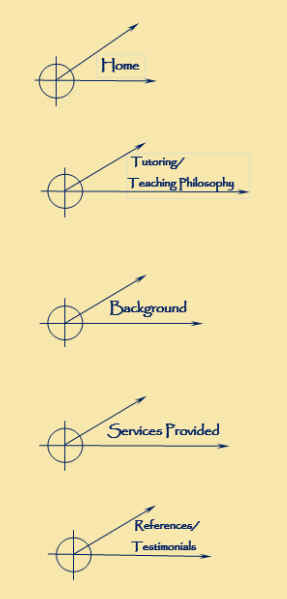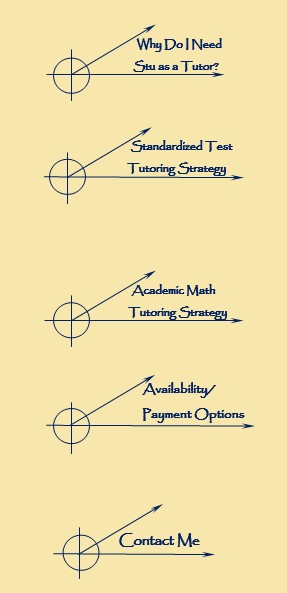
Stuart H. Radin - Mathematics Tutor

Standardized Test Tutoring Approach
I have developed my own program and philosophy for standardized test tutoring. I use assessments developed by the governing body of each respective test (for example, the College Board for the SAT), to target specific areas of weakness. I then use problem sets which concentrate on those specific areas of weakness to improve the student's skill level in these areas. These problem sets are resources that I have developed and are not available in stores! Instead of wasting a student's time and money by completing practice test after practice test, I focus on the areas where a student needs the most help. I encourage students to periodically complete full practice tests, but I do not push you to pay me to proctor the exam, when a parent or sibling can easily serve as a proctor.
There has been a movement of late among many of the high schools in this area to insist that each student take the PSAT in both their sophomore and junior years. When pressed as to why these schools are doing this, school officials' response tends to be: "That's the way we do things at XYZ High School". As if there is some sort of badge of honor students will earn by taking this test twice! I think that this practice is not only a total waste of time and money, but can also hurt a student with their test taking performance in the long run. With the understanding that I may be inviting the possibility of being looked at as a conspiracy theorist, I wonder if the push for taking the PSAT multiple times is rooted in a money grab strategy by the College Board.
The PSAT serves three purposes: 1) It provides a shorter version of the SAT, so that students can become familiar with the format and content of the SAT, and 2) It provides a baseline score, indicating a student's strengths and weaknesses within the various content areas of the test, and 3) It qualifies students who are smart enough to earn the status of "National Merit Scholar", and subsequently earn a National Merit Scholarship. The results of the PSAT are not shared with anyone but the student, parents, and the appropriate high school officials. Colleges and universities never see the PSAT results and the results never factor into the college admission process, unless…..the test score is in the top ˝ of 1%. Students who score at this lofty level qualify for a National Merit Scholarship. These scholarships are for the elite of the elite!
I can see no logical reason to take the PSAT twice, unless the student has a reasonable chance to score in the top ˝ of 1%. Obviously, most students do not. I question the logic of taking a practice test twice. Why not move on to the SAT, where the results actually count? I also believe that there is a phenomenon which I refer to as "test fatigue", where students can get themselves psychologically ready and motivated only so many times to sit through these tests. And once a student hits the test fatigue tipping point, no amount of study and preparation will increase their scores. So why waste a limited number of opportunities on taking a practice test again? It defies logic.
There are standardized test prep outfits and tutors out there who advocate the instruction of specific test taking "tricks". I believe that developing content knowledge is the primary factor which leads to success with standardized tests. In theory, the "tricks" look good, but they are usually demonstrated in an obvious case, not for ambiguous examples. I believe that a student will waste too much time deciding which "trick" to implement, rather than analyzing the content behind the question. Instead of teaching tricks, I stress improving a student's knowledge of the content. I have developed an extensive list of test taking strategies, to support the mastery of content. These test taking strategies are organized in a handout which I provide to my students.
In March of 2016, a redesigned SAT was
implemented to more
closely mirror the ACT. Although the two tests are more closely aligned,
there are still a number of differences between the content of the two
tests and the underlying strategy necessary to reach one's goals on either
test. When working with a student for both tests, I highlight the
tests' differences.

860-670-4848
info@stuartradinmathtutor.com Tech issues: web@stuartradinmathtutor.com